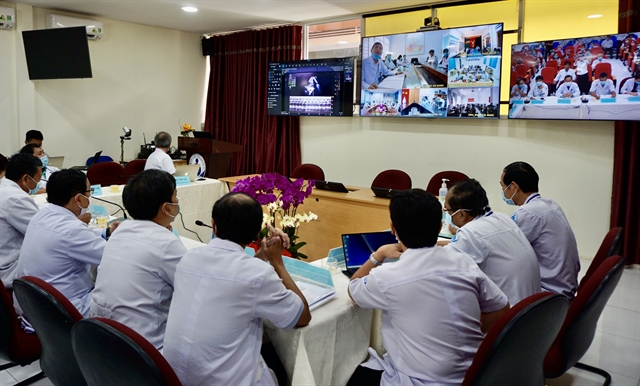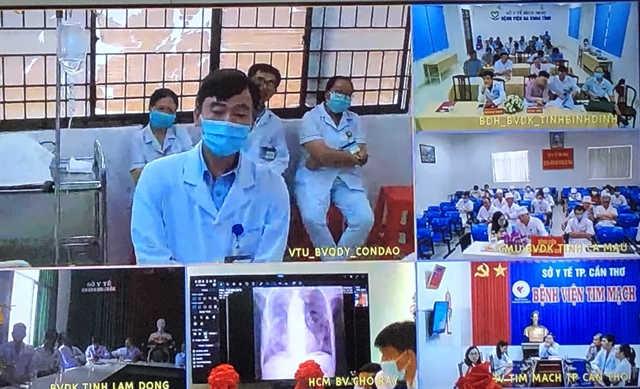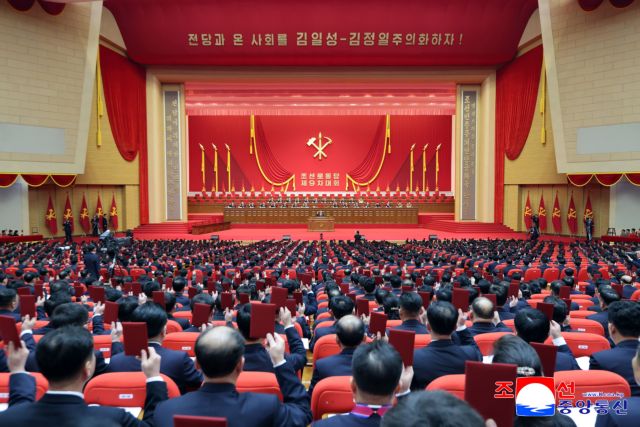 Society
Society
.jpg)

|
| Doctors at Children Hospital No.1 in HCM City conduct an online consultation about a patient at An Giang Province Obstetrics and Pediatrics Hospital. — VNS Photo Thu Hằng |
Thu Hằng
HCM CITY — Doctors at People Military Health Centre in Bà Rịa-Vũng Tàu Province’s Côn Đảo Island District last week took part in an online consultation with mainland medical specialists at Chợ Rẫy Hospital in HCM City to discuss treatment of a 91-year-old patient.
Doctors at Côn Đảo Island’s health centre had diagnosed that the patient had a tumour in his colon, heart failure, hypertension and chronic bronchitis. They asked for the specialists’ advice on further diagnosis and treatment via the telehealth system at Chợ Rẫy Hospital.
The primary care doctors sent their examination notes and medical history, as well as test results, to the specialists at Chợ Rẫy Hospital, using digital video cameras, internet telecommunications, mobile devices and other technologies.
Doctors at Chợ Rẫy Hospital ordered a CT scan of the abdomen. As the island centre is not equipped with a CT scanner, the patient had to be transferred to another medical facility.
The patient was one of the first three cases that Chợ Rẫy Hospital’s specialists discussed as part of the remote diagnosis and treatment of patients at its Consultation, Examination and Treatment Centre.
The centre, which opened last Wednesday, is part of the Ministry of Health’s project from 2020-2025 to promote medical examinations and treatment in remote areas.
The project has so far connected nearly 30 top-tier hospitals in Hà Nội and HCM City with 1,000 medical facilities at lower levels.
Dr. Nguyễn Tri Thức, director of Chợ Rẫy Hospital, one of the leading hospitals in the southern region, said the telehealth system developed by the Viettel Group provided healthcare for patients in remote and disadvantaged areas.
“The virtual consultations allow primary care doctors to communicate and get advice from specialists at central hospitals when they have questions about diagnosis or treatment.
“The hospital has connected more than 300 district-level and provincial-level medical facilities in the south, delivering acute and timely specialty care via digital information and communication technologies,” he said.
A physician at the hospital can conduct a virtual consultation via real-time video communication platforms about patients who are not able to travel from islands or remote areas. The telehealth method also improves emergency responses at local hospitals.
The hospital can then dispatch medical staff to support primary doctors if needed.
Remote examinations prevent unnecessary referrals to specialists and minimise the impact of patient overcrowding at Chợ Rẫy Hospital, which offers 10,000 in-patients and out-patients a day.
In the first six months of the year, more than 26,500 patients from other cities and provinces were transferred to Chợ Rẫy Hospital's emergency department.

|
| Doctors at People's Military Health Centre in Bà Rịa-Vũng Tàu Province’s Côn Đảo District take part in an online consultation with medical specialists at Chợ Rẫy Hospital in HCM City to discuss treatment for a 91-year-old patient. — VNS Photo Thu Hằng |
Medical training
The telehealth system also offers benefits to medical staff at grassroots or district-level medical facilities with continuous updating of knowledge about clinical and specialty care, according to Assoc. Prof. Nguyễn Thanh Hùng, director of Children Hospital No.1.
Children Hospital No.1 is one of the hospitals in HCM City selected by the Ministry of Health to take part in the project on remote examination and treatment. The hospital has connected with at least 68 obstetrics and pediatrics hospitals and clinics in 25 cities and provinces.
“The project is expected to make health care accessible to people who live in rural or isolated communities and improve the competence and medical expertise of primary doctors at local-level hospitals," Hùng said.
“Local medical staff will frequently receive training and updated clinical knowledge and specialty care from leading specialists at city-level hospitals so they can improve the quality of health care at local facilities."
The virtual consultations will focus on complicated cases and chronic severe cases to discover the best treatment methods.
In emergency cases, telehealth connects doctors who have special emergency training to remotely evaluate patients, make diagnoses, and provide treatment recommendations to doctors at local hospitals.
Assoc. Prof. Nguyễn Hoàng Bắc, director of University Medical Centre in HCM City, said that remote examinations and treatment with the use of digital information and communication technologies would help improve the quality of health care services and reduce costs and overcrowding at large hospitals.
Privacy concerns
The Ministry of Health has issued regulations on the privacy of patient health data used in remote examinations in an attempt to address privacy and security risks.
The regulations prohibit revealing patients’ personal information and images, or conducting live streams or publishing information on social media about patients.
Medical experts have said that insurance reimbursement for telehealth is one of the factors hindering the implementation of the project. Virtual consultations also lack an in-person evaluation, which may affect an accurate diagnosis. — VNS
.jpg)



